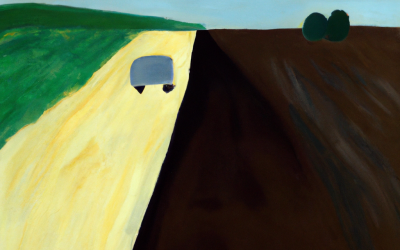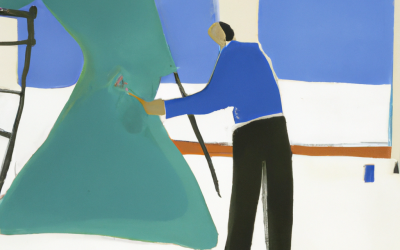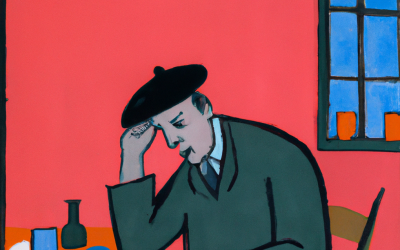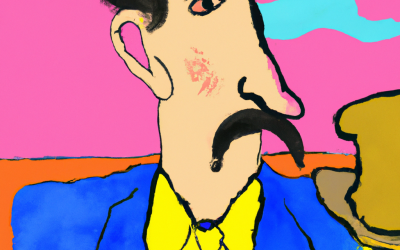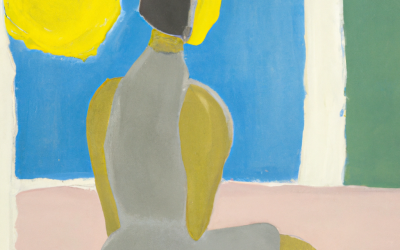The Lies We Tell Ourselves (and Believe Anyway)
You ever catch yourself mid-thought and go, “Wow, that was some absolute nonsense”? Congratulations! You’re human, and your brain is the unreliable narrator of your life. The mind doesn’t just think; it tells stories, spins narratives, and occasionally gaslights you into believing you texted someone back when you absolutely did not.
But here’s the twist—what if the real storyteller isn’t the brain at all? What if the brain is just the processor, the hardware running the software of identity? And what if the real culprit behind our confusion is something deeper—our very sense of self, our soul, mistakenly identifying with the body and mind?
Welcome to Advaita Vedanta (and other Eastern spiritual traditions), where reality is questioned, illusions are exposed, and you realize you might not be who you think you are.

The Brain: A Self-Appointed Biographer (or Just the Typist?)
Our brains have a job: to make sense of everything. But instead of calmly analyzing data like a reliable computer, it stitches together bits and pieces of experience, emotions, and assumptions into one grand, slightly distorted personal narrative. It’s like an overworked novelist working on deadline—sometimes the plot gets a little wobbly.
But let’s step back. According to Advaita Vedanta, the brain isn’t the true “biographer.” It’s just the instrument through which the deeper self—the Atman—experiences this illusory world (Maya). In reality, the brain doesn’t create the self; it merely processes sensory input and executes conditioned responses. The real mistake happens when the Atman, the eternal self, starts believing it is the brain and body. That’s where the confusion begins.
The “I” Illusion: The Character You Think You Are
The problem with asking, Who am I? is that you expect a straightforward answer. Spoiler alert: there isn’t one. What you think of as “you” is really just a mental construct, a character that your brain has carefully crafted based on past experiences, societal expectations, and that one embarrassing moment in middle school that haunts you at 2 AM.
But here’s the kicker—this mental construct is not your true self. Advaita Vedanta teaches that the real you, the Atman, is beyond thought, beyond emotion, beyond the fluctuating self-image that changes depending on your morning coffee intake. The mind is merely a tool, shaping the illusion of an individual self (Jiva). The real tragedy? We get so caught up in the mind’s stories that we forget we were never the character—we were always the silent witness, watching the play unfold.
Your Brain: The Original Unreliable Narrator (But Not the Real Culprit)
If your mind were a news outlet, it would have a bias—and a heavy one. Your brain isn’t here to report truth; it’s here to make sense of the chaos. And sometimes, in its eagerness to create a logical narrative, it just straight-up makes stuff up.
- Memory? It’s Fiction. Think you remember your childhood accurately? Think again. Neuroscientists have shown that our memories are reconstructed, not replayed, meaning every time you remember something, you might be rewriting it.
- Example: That time you “heroically” caught a falling book? Yeah, you probably just watched it hit the ground in slow motion.
- Cognitive Biases: The Editing Tricks of the Mind
Your brain loves a good shortcut, which is why it relies on biases:- Confirmation Bias: Only remembering things that fit your existing beliefs.
- Negativity Bias: Why you still cringe about that awkward handshake from five years ago.
- Optimism Bias: Thinking you’ll totally wake up early and be productive tomorrow. (Spoiler: you won’t.)
But Vedanta takes this even further. It doesn’t just say the brain is unreliable—it says the entire mind-body complex is an illusion. The moment you believe your thoughts define you, you are lost in Maya. The solution? Detach. Realize that you are not the thinker—you are the awareness behind the thoughts.
The Identity Crisis: How Our Stories Change (and Why None of Them Are Real)
Ever look back at your past self and wonder, “Who was that person?” That’s because your self-narrative evolves. What you believed about yourself at 15 is (hopefully) different from what you believe now. You’re not less you; you’re just the latest edition of you—kind of like an iPhone update but with more emotional baggage.
Sometimes, change happens suddenly:
- A major life event (breakup, new job, mid-life crisis where you buy a motorcycle)
- A shift in environment (new city, new friend group, discovering oat milk)
- Self-reflection (finally questioning why you still say “YOLO” unironically)
Your brain rewrites your identity as needed. But here’s the Advaita twist—none of these identities were ever real in the first place. They were just masks, temporary roles played in the grand illusion of life. The real you has never changed, because it is beyond change. It is pure consciousness, the observer of all stories, untouched by the drama of the mind.
Breaking Free: How to Rewrite (or Abandon) Your Narrative
If your mind is going to tell stories, you might as well get a say in how they’re written. Here’s how to take back some editorial control—or, better yet, transcend the whole storytelling business.
- Question Your Thoughts – Just because your brain says you’re bad at something doesn’t mean it’s true. Is this a fact, or just an old story you’ve repeated too many times? And deeper still—who is the one observing this thought?
- Detach from the Narrative – Instead of rewriting your identity, try stepping back from it entirely. You are not the protagonist of the story; you are the awareness watching it unfold.
- Challenge the Illusion – Vedanta suggests asking, Who am I? again and again until you see that no mental answer suffices. Keep peeling away the layers of illusion until all that remains is pure, silent being.
- Embrace the Plot Twists—But Don’t Get Too Attached – Your story will change, whether you like it or not. Instead of fearing identity shifts, think of them as ripples on the surface of a vast ocean—entertaining, perhaps, but never altering the depths beneath.
You Are Not Your Story (And That’s the Liberation)
Who are you, really? The answer is… not what you think. You are not the character in your mind’s story. You are not your thoughts, not your memories, not your body, not even your personality. You are the silent, formless awareness that exists beyond all of it.
This is the essence of Advaita Vedanta. The mind will keep telling its stories, because that’s what minds do. But the moment you stop identifying with those stories—when you see them as passing clouds instead of the sky itself—that’s when real freedom begins. And who knows? Maybe, just maybe, you’ll finally be able to sit back and enjoy the show.










